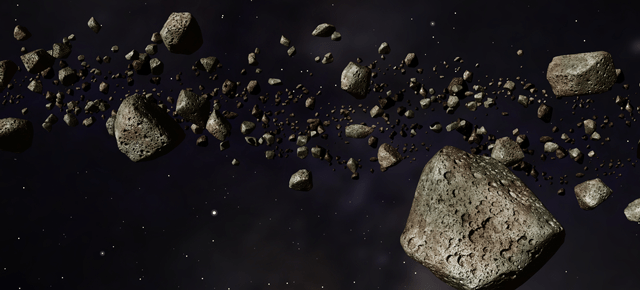At a pink limestone quarry in Sweden, finding meteorite is no big deal — workers have found 101 of them in the past 20 years. But a new space rock discovery has scientists scratching their heads. The meteorite is of a class that’s never before been seen, and it may hold a key to the explosion of life on Earth nearly 500 million years ago.
The other meteorites found at the Swedish quarry all belong to a class called L chondrites. They’re the second most common class of meteorite, and 470 million years ago, the Earth came under especially intense bombardment by L chondrites. Why did this happen? Scientists think that a small asteroid (of unknown origin and composition) crashed into a larger one, which broke apart into the L chondrites that then showered the Earth. That smaller asteroid has been lost to time and space…until now. This new meteorite could be a fragment from that mysterious asteroid.
Around the same time these L chondrites were falling to Earth, life suddenly bloomed. The early Ordovician was a time of intense diversification, and many new species emerged. New Scientist explains how this could be traced to meteorites:
According to one popular idea, this intense meteor shower caused just enough destruction to open up ecological niches and drive life to diversify into a richer assortment. But the fate and identity of the smaller asteroid has long been a mystery.
The fact that the latest fossil comes from the same rock layers as the L chondrites suggests that it is a piece of that second asteroid, says [co-author Birger] Schmitz. The theory says that most of the smaller asteroid was vaporised during the collision, so it also makes sense that only scant fragments of it would remain.
The new meteorite is distinguished from known meteorites by small differences in its composition of elements. The team of scientists behind the discovery now plan to search other quarries for possible fragments from the same asteroid. For now, they taken to calling it the “mysterious object” until it’s formally named. Figuratively if not literally, this mysterious object could have made a huge impact on Earth. [Earth and Planetary Science Letters via New Scientist, LiveScience]
Picture: Paul Fleet/Shutterstock
